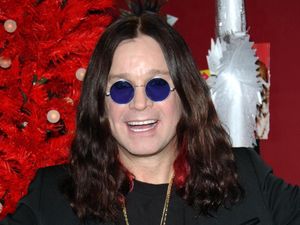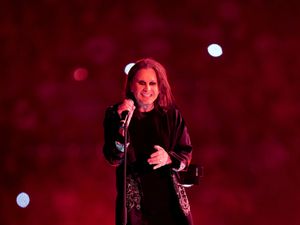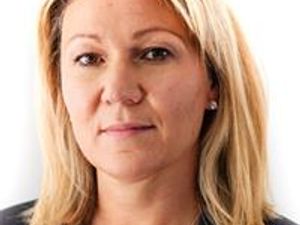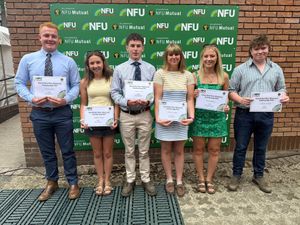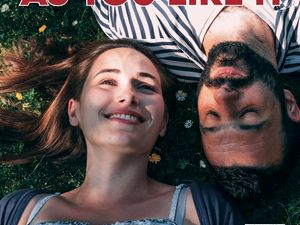James' Tim Booth speaks ahead of Wolverhampton show - interview
His plane touched down an hour late. Tim Booth whiled away the 10-and-a-half Transatlantic hours from Los Angeles to London by watching junk TV that he refuses to watch at home.
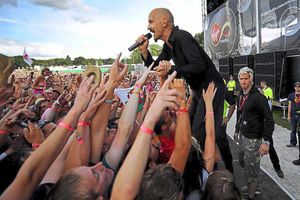
He's come a long way since his roots in Shropshire.
These days, the singer lives in Topanga, not far from Santa Monica and Los Angeles. He lives out in the wilds, in a Californian State Park, where he's as likely to be greeted by a coyote as he is another human.
Booth has flown to the UK for a run of shows with James, the Manchester band who formed in 1982 then reformed in 2007, after splitting in 2001. They play Wolverhampton's Civic Hall tomorrow night.
Booth got involved in the 1980s after James's founding members had seen him at a student disco. He was asked to the band's scout hut, at Withington, and joined them as a dancer. Things worked so well that he was promoted to lead singer.
Listen to James' Sit Down here:
His route to rock'n'roll had been paved in Shropshire. He'd been sent to Shrewsbury School and likened it to a prison. At Shrewsbury, he discovered punk, immersing himself in visceral music to sate the pain of perceived rejection by his loving parents.
"Shrewsbury School was a very repressive Victorian school. There wasn't any artistic culture allowed. We used to break into the science lab and watch Monty Python or The Old Grey Whistle Test. Then punk came in and it was such a breath of fresh air."
Booth started organising trips to gigs, including one to The White Riot tour, with The Jam, Buzzcocks, Subway Sect and The Slits.
"We organised a trip to The White Riot tour and it was a riot. We had to go in school uniform. It was stunning. The second gig trip I organised was with a friend to see Iggy Pop at Manchester Apollo.
"It completely contradicted the restricted, safe, middle class Victorian environment that I came from. It was a revolution for my psyche of who I could be. It felt so much more real."
Booth dragged a few teachers to those gigs – they weren't impressed. They didn't see the musical merit in punk bands of the late 1970s. "So the teachers made me write up reviews for the school magazine. I wrote up Wire, The Stranglers and The Boomtown Rats. Then I just kept sneaking out and went to as many gigs as I wanted. I saw Springsteen and Dylan then and ran away from home to see Patti Smith. It was speaking a truth to me that my world wasn't. It was about reaching out to a very lonely 16-year-old who couldn't be reached."
And then came James.
The band formed during a druggy and anarchic period and for years they were ignored. Though it might seem difficult to believe now – after all, the band filled arenas after scoring hits with Sit Down, Born Of Frustration, Come Home, How Was It For You? and Ring The Bells – for many years, the press didn't want to know.
Booth toured with most of the Manchester bands of that era, supporting The Fall, New Order and The Smiths and, in turn, being supported by The Stone Roses, Inspiral Carpets and Happy Mondays, in addition to non-Mancs Radiohead. "We were kindred spirits. It was a really healthy time."
Listen to James'
Booth remembers media disinterest. "We had seven years of not making any money. But whenever we toured, the audiences would come. We had a lot of difficulties with record companies and multi-nationals who wanted us to be things we weren't. And nobody would play us on daytime radio. The only person who played indie music of any description was John Peel. So by the time the media woke up to us we were already playing to audiences of 4,000 or 10,000.
"People suddenly realised we were huge. It was a great way to land. We'd had seven years of musical preparation. It didn't overwhelm us like the bands these days who suddenly make it big but have only got one album in their kitbag. Nobody was going to be able to compromise us because we already had a way of working."
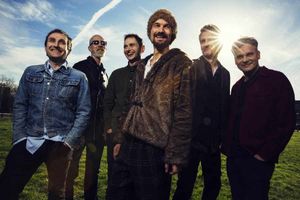
Though the band enjoyed commercial success and were belatedly touted as some sort of New/Old Best Thing, they changed the game in 1993 when they started working with Brian Eno. Booth developed a close relationship with him and Eno described the single Sometimes as one of the greatest musical moments of his life. Though the record was no more successful than its two number two predecessors, Gold Mother and Seven, it broke the band in the USA and earned them a new-found respect as one of Britain's best bands. Critics and fans alike suddenly started to take the band more seriously.
"Yeah, working with Brian really helped," muses Booth. "He was playful, he helped us relax and he took us to places that we wouldn't have reached without him."
They ran out of gas after 2001's Pleased To Meet you, breaking up for five or six years. But in 2006, they returned for one of rock music's great reformations. Hey Ma, in 2008, announced their return but it was 2014's La Petite Mort and this year's number two hit Girl At The End Of The World that restored them to the creative and commercial peaks of Laid. The latter was only denied the number one spot by million-shifting-mega-tron-singer Adele.
"We're very happy. We've hit a rich seam and you can't guarantee how long those things will last. We can have periods where we write a lot of songs and go fishing. We might go fishing for 120 jams and then different individuals chose their favourites and edit them and bring them to the rest of the band. Nobody controls the process. We are this improvised collective and people can come in and randomly attack a song and create something new."
The band were determined not to follow the nostalgia route when they reformed. Not for them the filthy lucre of a Shed Seven or Specials tour, where fans get to hear all the old hits. "Not many bands had reformed by 2006, which is when we came back. And those that did looked like they had done it for the money.
"Springsteen was the one that stood out. He'd reformed the E Street Band and Wrecking Ball was a brilliant album, one of his best. That set the bar. He showed that there was a way of doing it with dignity."
Dignity, grace, panache and style: since their comeback, James have embodied those virtues and more. They've been ever-popular in the West Midlands and will return to a happy stomping ground, Wolverhampton's Civic Hall tomorrow.
They'll be playing tunes from Girl At The End of The World, La Petite Mort and a sprinkling of hits – though not too many. Rather than waste the hours before showtime, they'll go through their extensive back catalogue to dust down a few unexpected surprises from albums past. "If something works, we'll play it."
And if something doesn't they won't? "No, we'll play that too."
By Andy Richardson

